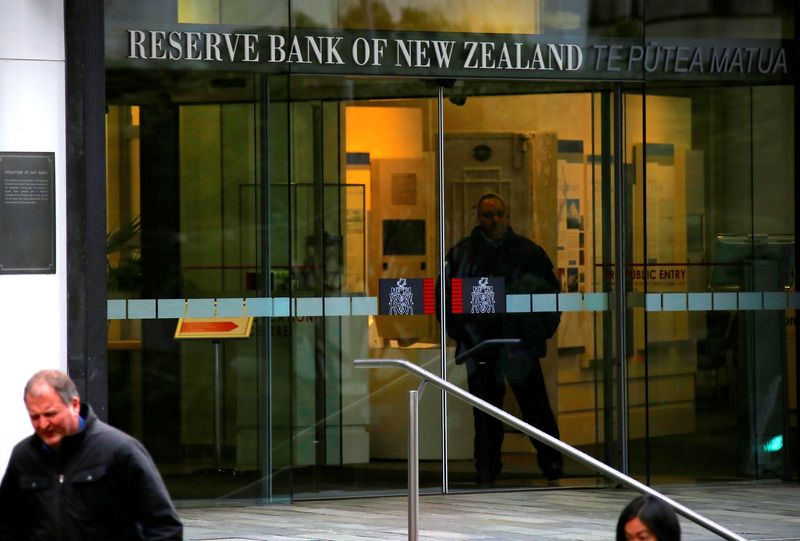By Devayani Sathyan
BENGALURU (Reuters) - New Zealand's central bank will likely keep interest rates unchanged at 5.50% on Wednesday and for the rest of the year, marking an end to its 20-month long hiking cycle which has already pushed the economy into recession, a Reuters poll found.
One of the first movers in the current global tightening cycle against surging inflation, the Reserve Bank of New Zealand (RBNZ) is probably now in a "wait and see" mode. The official cash rate is at a 14-year high and the highest among its developed market peers.
The economy is forecast to weaken further as the impact of 525 basis points of RBNZ rate rises becomes more visible. But at 6.7%, inflation is still running at more than double the central bank's 1-3% target range.
All 25 economists polled by Reuters July 3-6 expected the RBNZ to hold the official cash rate (OCR) at 5.50% on July 12. It would be the first time the RBNZ has not raised rates at a policy meeting in nearly two years.
The central bank raised rates in May but signalled it was done tightening.
"In the May statement they gave us a crystal clear OCR track. Only a few commentators out there can't seem to figure it out, but it's just a flat straight line that goes well into next year. That will not have changed," said Jarrod Kerr, chief economist at Kiwibank.
"That last move was a signal that they're pausing from now and part of that is the fact the economic data has come in below their own forecast ... there's nothing really else for them to say other than 'we're waiting, we're watching'."
The largest banks in the country - ANZ, ASB, Bank of New Zealand, Kiwibank and Westpac - forecast no rate move next week, in line with the market pricing.
Over 90% of economists polled, 23 of 24, did not predict any changes to rates this quarter. One expected a 25 basis point (bps) hike by end-September.
Median forecasts showed rates being held steady at 5.50% until the end of the first quarter in 2024. Three of the 24 respondents predicted at least one 25 bps cut this year, down from about one-third of the sample predicting that move in a May poll.
"We do think the RBNZ has done enough. But the risk over the next few months is that inflation pressures reduce too slowly for the RBNZ's liking. Furthermore, the RBNZ is unlikely to start cutting interest rates soon," noted Nick Tuffley, chief economist at ASB.
"Over the past couple of months, other central banks have had to up their tempo. Over the rest of 2023 the more likely risk is that the OCR goes up slightly further if the decline in inflation starts to look drawn out."
A majority of respondents, 16 of 22, expected at least one 25 bps rate cut in the second quarter of 2024, roughly around the time inflation was forecast to fall within the central bank's target range.
Economists expected inflation to average 5.3% this year and then slip to 2.9% in 2024, slightly higher than 5.1% and 2.6% forecast in an April survey.

New Zealand's economy slipped into a mild recession in the first quarter, but analysts expect it to grow 0.7% this year. It was expected to grow 1.0% in 2024.
(This story has been refiled to correct the graphic link)